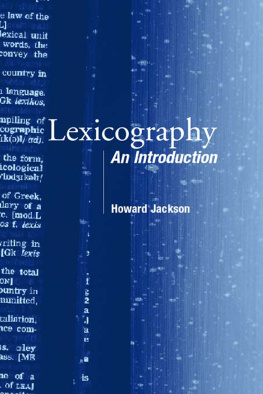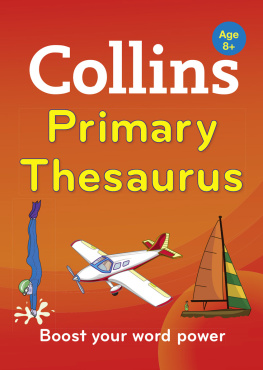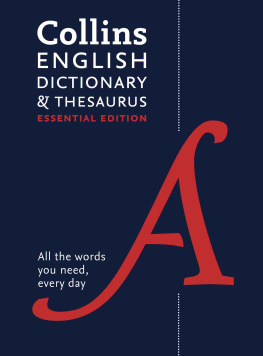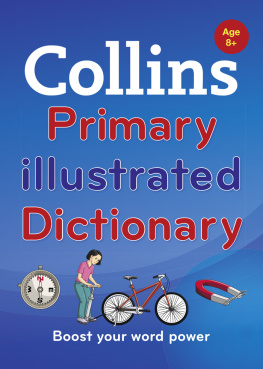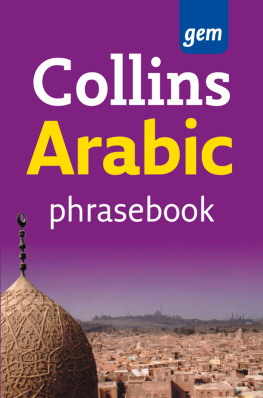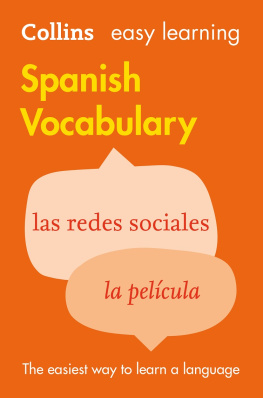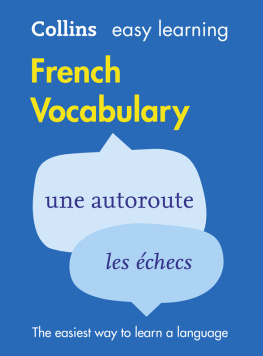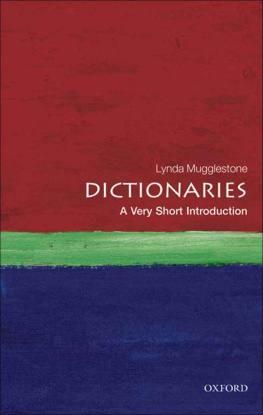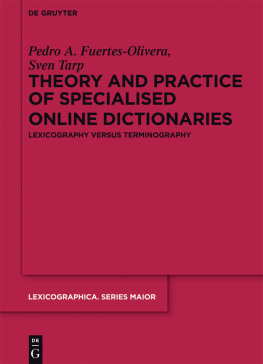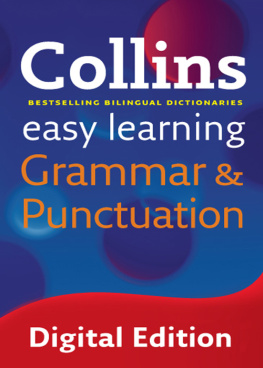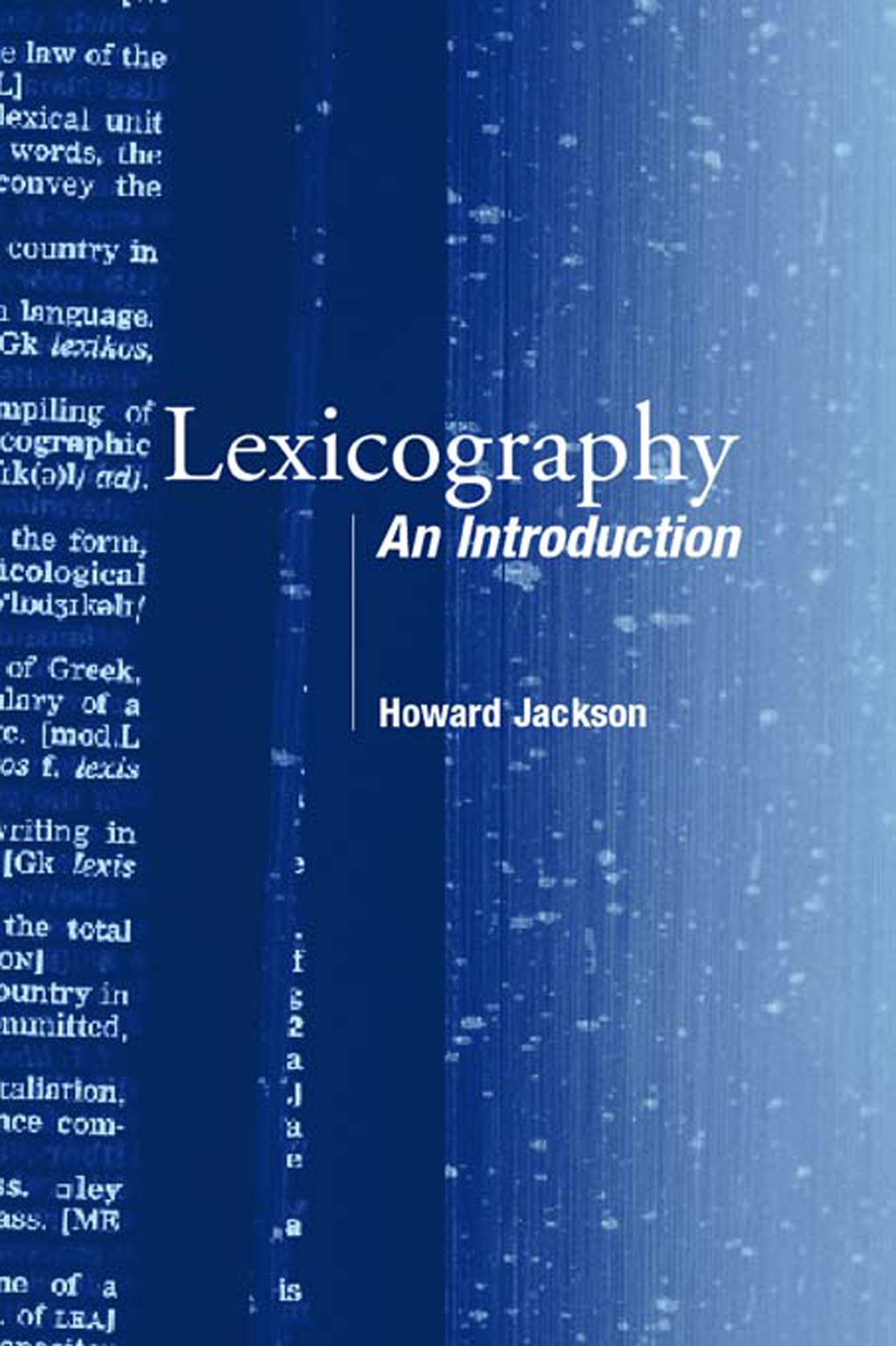Lexicography
This book is an accessible introduction to lexicography the study of dictionaries.
We rely on dictionaries to provide us with definitions of words, and to tell us how to spell them. They are used at home and at school, cited in law courts, sermons and parliament, and referred to by crossword addicts and scrabble players alike. But why are dictionaries structured as they are? What types of dictionary exist, and what purposes do they serve? Who uses a dictionary, and for what?
Lexicography: An Introduction provides a detailed overview of the history, types and content of these essential reference works. Howard Jackson analyses a wide range of dictionaries, from those for native speakers to thematic dictionaries and learners dictionaries, including those on CD-ROM, to reveal the ways in which dictionaries fulfil their dual function of describing the vocabulary of English and providing a useful and accessible reference resource.
Beginning with an introduction to the terms used in lexicology to describe words and vocabulary, and offering summaries and suggestions for further reading, Lexicography: An Introduction is concise and student-friendly. It is ideal for anyone with an interest in the development and use of dictionaries.
Howard Jackson is Professor of English Language and Linguistics at the University of Central England. His publications include Grammar and Vocabulary (Routledge, 2002), Words and their Meaning (Longman, 1988), and Words, Meaning and Vocabulary (Cassell, 2000).
Lexicography
An introduction
Howard Jackson

First published 2002
by Routledge
11 New Fetter Lane, London EC4P 4EE
Simultaneously published in the USA and Canada by Routledge
29 West 35th Street, New York, NY 10001
Routledge is an imprint of the Taylor & Francis Group
2002 Howard Jackson
Typeset in Bembo by
The Running Head Limited, Cambridge
Printed and bound in Great Britain by TJ International
All rights reserved. No part of this book may be reprinted or reproduced or utilised in any form or by any electronic, mechanical, or other means, now known or hereafter invented, including photocopying and recording, or in any information storage or retrieval system, without permission in writing from the publishers.
British Library Cataloguing in Publication Data
A catalogue record for this book is available from the British Library
Library of Congress Cataloging in Publication Data
A catalog record has been requested
ISBN 0415231728 (hbk)
ISBN 0415231736 (pbk)
Contents
Preface
Much has happened, both in respect of the making of dictionaries and in respect of their academic study, in the twelve or so years since my previous book on dictionaries (Words and Their Meaning, Longman, 1988). Then, the corpus revolution (Rundell and Stock 1992) had only just begun Words and Their Meaning just managed to catch the first (1987) edition of the Collins COBUILD English Dictionary. Now virtually all dictionaries published in the UK make some claim to have used a computer corpus in their compilation. Not only have learners dictionaries developed by leaps and bounds the Oxford Advanced Learner's Dictionary was in its third edition then, now in its sixth, and the Cambridge International Dictionary of English was still a long way off but native speaker dictionaries have also seen significant developments the publication of the New Oxford Dictionary of English in 1998, as well as three editions of the Concise Oxford, not to mention the second edition of the great OED in 1989 and the beginning of the massive revision that will result in the third edition, planned for 2010.
Dictionaries have also appeared during the period in electronic format, notably as CD-ROMs, opening up new possibilities, not only in how dictionaries can be used and exploited, but also in how dictionary material can be organised and presented. Dictionaries are also accessible online, through the internet, including the OED, enabling subscribers to view the revisions that will constitute the third edition, as they are posted quarterly.
The study of lexicography has also developed and flourished during the last dozen years. They saw the launch of the highly successful International Journal of Lexicography in 1988, for the first ten years under the editorship of Robert Ilson, and latterly that of Tony Cowie. The mighty three-volume Encyclopedia of Lexicography (Hausmann et al. 198991) delineated the state of the art, and the Dictionary of Lexicography (Hartmann and James 1998) mapped the territory. More recently, Reinhard Hartmann's Teaching and Researching Lexicography (2001) has set the agenda for the business of academic lexicography. And Sidney Landau has updated his readable Dictionaries: The Art and Craft of Lexicography (second edition, 2001) with its transatlantic perspective.
It is time for a new treatment of the subject in the UK. I am grateful to Louisa Semlyen and to Routledge for taking this on. The book is dedicated to all the final-year students who have enabled me to develop the material by taking my Lexicography module on the English degree at the University of Central England in Birmingham over more years than I care to recall.
Howard Jackson
Birmingham
August 2001
Dictionaries cited
The following dictionaries are mentioned in the course of this book. (Note: a superscript number, e.g. 19882, refers to the edition; in this case, the second edition published in 1988.)
Native speaker dictionaries
Chambers English Dictionary, (19887) edited by Catherine Schwarz, George Davidson, Anne Seaton and Virginia Tebbit.
Chambers 21st Century Dictionary (1996) edited by Mairi Robinson.
Collins Concise Dictionary (1982; 19882; 19923; 19994, edited by Diana Treffry).
Collins English Dictionary (1979 edited by Patrick Hanks, 19862 edited by Patrick Hanks, 1991/943 edited by Marian Makins, 19984 edited by Diana Treffry).
Concise Oxford Dictionary (1911 edited by H.G. and F.W. Fowler, 19292, 19343, 19514, 19645, 19766, 19827, 19908, 19959, 199910 edited by Judy Pearsall).
Encarta Concise English Dictionary (2001) edited by Kathy Rooney, Bloomsbury.
Longman Dictionary of the English Language (1984, 19912 edited by Brian O'Kill).
A New English Dictionary on Historical Principles (18881928) edited by James Murray, Henry Bradley, W.A. Craigie and C.T. Onions.
New Oxford Dictionary of English (1998) edited by Judy Pearsall.
Oxford English Dictionary (1933 edited by James Murray et al., 19892 edited by John Simpson and Edmund Weiner).
The New Shorter Oxford English Dictionary on Historical Principles (1993) edited by Lesley Brown.
Webster's Third New International Dictionary of the English Language (1961) edited by Philip Gove.
Monolingual learners dictionaries
Cambridge Dictionary of American English (2000) edited by Sidney Landau.
Cambridge International Dictionary of English (1995) edited by Paul Proctor.
Collins COBUILD English Dictionary (1987, 19952, 20013) edited by John Sinclair.
Longman Dictionary of Contemporary English

